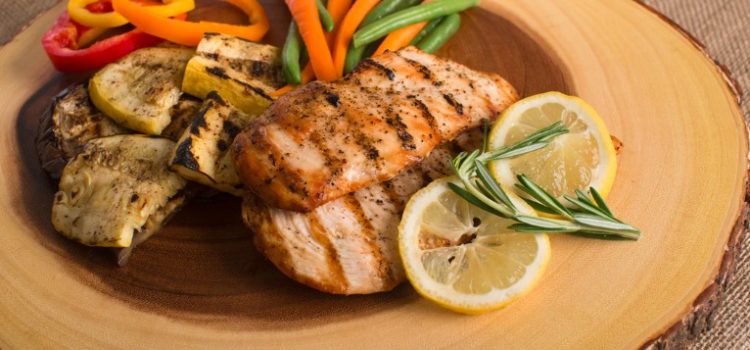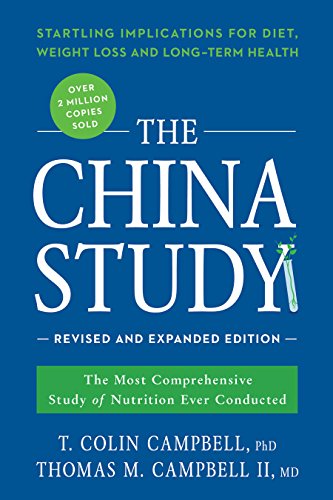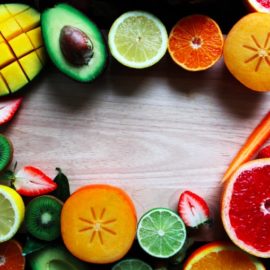

This article is an excerpt from the Shortform summary of "The China Study" by Colin Campbell. Shortform has the world's best summaries of books you should be reading.
Like this article? Sign up for a free trial here .
One thing we think we know about nutrition is that we need lots of protein to be strong and healthy. But how should we get that protein? In the debate about plant protein vs. animal protein, it can be hard to know how they’re different and which is the healthier choice.
We probably don’t need animal protein at all. We’ll cover the difference between plant and animal proteins and determine which is healthier.
What Is Protein?
Protein is a chemical made up of chains of hundreds of amino acids. It’s an essential part of our biological makeup—proteins function as enzymes, hormones, tissues, and transport molecules, among other roles.
Our bodies need to replace proteins when they get old and wear out. You can imagine a protein as a string of different colored beads, each color representing a different amino acid. When the string of beads breaks, we need to build a new one from new beads.
Our bodies make many of these “beads,” or amino acids, on their own, but there are eight they can’t produce. We need to consume these “essential” amino acids in order to replace some of our bodily proteins.
Plant Protein vs. Animal Protein: Which is Higher “Quality”?
The highest quality proteins are the ones that provide us with all eight of the amino acids our bodies can’t make themselves. The best quality proteins come from animal foods, particularly milk and eggs. As far as quality goes, animals win the plant protein vs. animal protein debate. The protein in plants is generally lower quality because a single plant source usually lacks one or more of the eight essential amino acids.
But the term “quality” is misleading. A protein can be “low quality” but still healthier than its high-quality peers.
“Low-quality” plant proteins are slower to synthesize into the proteins our body uses, but unlike animal proteins, they don’t increase our risk of disease. Animal proteins may be more efficient, but efficiency doesn’t always mean healthy. So even though animal proteins are higher quality, plants actually win the plant protein vs. meat protein debate because they’re healthier.
People worry that vegans (who don’t eat animal protein) don’t get the right amino acids, but as a group, plants contain everything we need. It’s not necessary to eat a huge quantity of plant proteins to reap their benefits, and we don’t need to meticulously plan each meal. As long as we’re eating a variety of plants, our amino-acid needs will likely be taken care of.
Our Infatuation with Animal Protein
If plants win the plant protein vs. animal protein debate, why do we associate protein with animal foods? The outsize role played by animal proteins in our culture and our understanding of healthy eating has been formed by a little science and even more myths.
Attitudes About Meat
When protein was discovered in the 19th century, people already believed that eating animals increased their endurance and strength. Eating animals also symbolized our dominance over other creatures. Any evidence of the benefits of animal protein was welcome news to a society that took pride in its place at the top of the food chain.
Further, meat was expensive. Consequently, it was a status symbol: Eating meat demonstrated that you were rich and relying on plant foods demonstrated that you were poor. Some upper-class people believed that the lower classes were lazy because they didn’t eat as much meat as those who could afford it.
These attitudes helped make protein synonymous with meat, and we’ve inherited them, whether we realize it or not. Even today, beef is probably the first thing you think of when someone says “protein.” We still believe that people who don’t eat meat are anemic and weak and that animal protein is an essential part of a healthy diet.
Study: The Problem with Animal Proteins
The example below shows why the plant protein vs. meat protein debate is so important and why animal protein can be dangerous.
Researcher T. Colin Campbell was working to solve malnutrition in the Philippines. A local doctor told him that children in the Philippines were dying of liver cancer before the age of 10. This was alarming. In the U.S., people usually don’t get liver cancer until they’re at least in their 40s.
Unexpectedly, the children who got liver cancer weren’t the most malnourished. They were from the wealthiest families, the ones who could afford to eat meat. They were eating more animal protein than most children in the country.
Common medical wisdom said that animal protein prevented diseases like liver cancer. What was going on? It was when he was contemplating this question that Campbell discovered the Indian study that linked liver cancer with milk protein.
In the study, 100% of the rats dosed with the carcinogen AF and fed high-protein diets got liver cancer. 0% of the rats dosed with AF and fed low-protein diets got liver cancer.
Campbell realized that while the medical community had been blaming carcinogens for liver cancer, the carcinogen may not be the biggest problem. Maybe AF wasn’t as dangerous as everyone thought it was. Maybe casein, an animal protein, was the real danger.
Later studies provided evidence that animal protein does indeed usher carcinogens into cells and increases your likelihood of getting a variety of cancers. When deciding to eat plant protein vs. animal protein, err on the safe side and go with plants.
Plant Protein vs. Animal Protein: Summary of Recommendations
- Eat plant-based proteins. These come in the form of fruits, vegetables, and whole grains.
- Avoid animal-based proteins. These come from meat, fish, eggs, and milk.
When it comes to plant protein vs. animal protein, plant protein wins.
———End of Preview———

Like what you just read? Read the rest of the world's best summary of "The China Study" at Shortform . Learn the book's critical concepts in 20 minutes or less .
Here's what you'll find in our full The China Study summary :
- Why animal proteins (meat, milk) might cause cancer, diabetes, and other diseases
- Why the medical institution is structured to hide the truth about disease and food
- The precise diet you'll need to eat to live longer and feel happier






